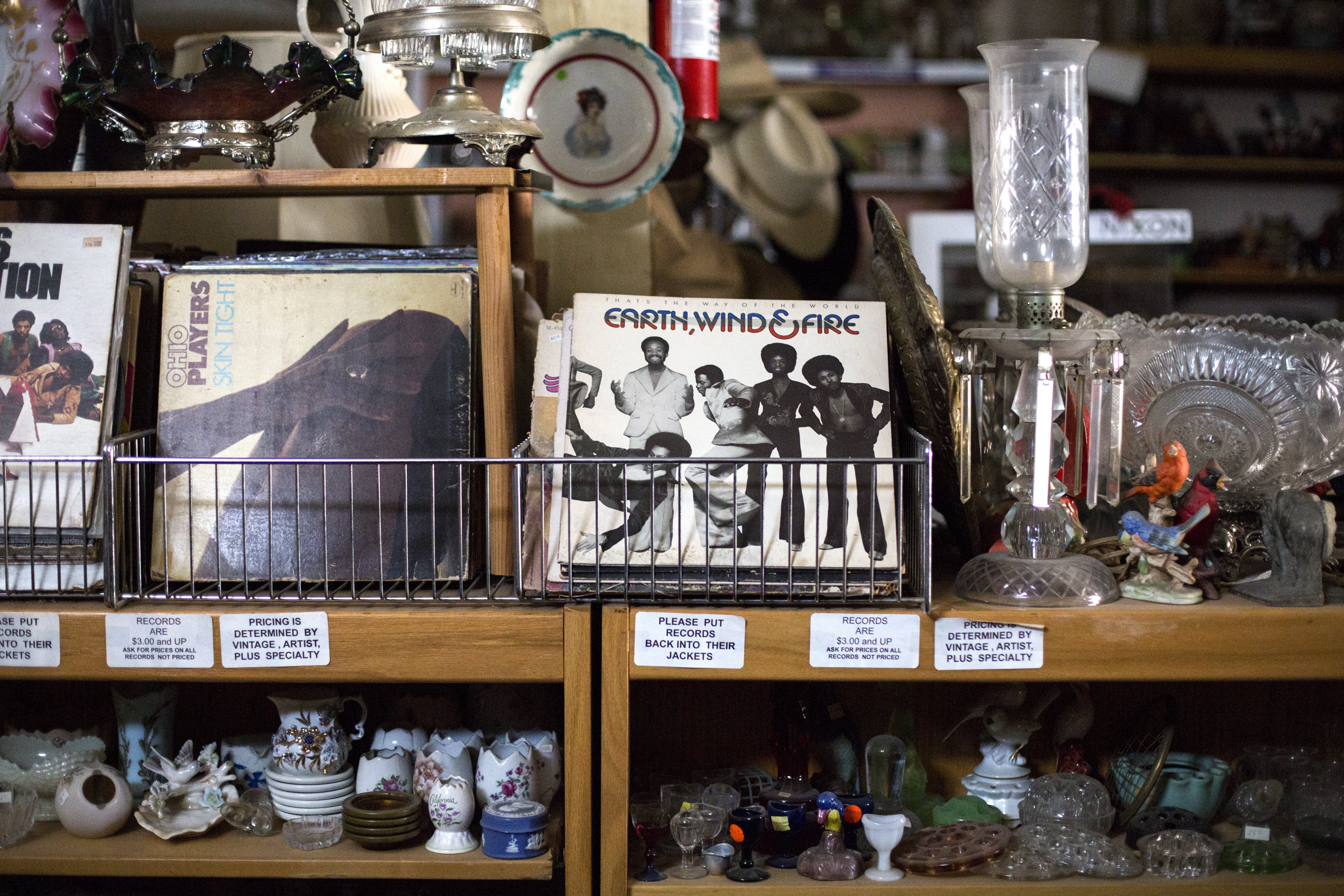The ceiling is cracked like an egg.
Dorothy Jeanne McPhaul, 86, says the structure of her family’s wooden antiques shop at 911 E. Sixth St. broke during the construction of a nearby new building.
Except for the rows and rows of dusty memorabilia arranged along narrow aisles, Johnnie’s Antiques and Collectibles is a lonely place these days. Usually dark, it does not keep regular hours. The curious must make an appointment.
The family business, started by McPhaul’s grandfather in 1918, is among the last vintage properties on this stretch of East Sixth, now overshadowed by mid-rise developments in all directions.
McPhaul, who personally collects African American memorabilia along with glass and pottery, says land dealers have offered millions of dollars to her family for the spot.
Yet for this native Austinite, Johnnie’s, named for her late aunt’s late husband, is about community, history and culture.
“When our first shop opened in 1918, it was just a little shack then,” McPhaul says. “Papa — my grandfather Simon Sidle — was a horse trader. He’d train the horses. He’d go out to these places and sometimes make a trade for antiques. A lot of his customers said he could get anything out of a house. You could never grab him with what was on a table outside.”
McPhaul, whose aunt and mother tended the business for decades, has appeared multiple times before the Austin City Council in attempts to save her building. Rising property taxes and predatory real estate dealers complicate the matter.
“I think taxing people out and low-ball offers, that sort of stuff, just to get people to move is not the way to do it,” McPhaul’s granddaughter Alex Johnson says. “My grandma is fighting for her legacy. This is our family; this is where we grew from.”
PHOTOS: Long-time antique store owner fights to keep family legacy on East Sixth Street
Meanwhile, McPhaul looks after the regulars in the neighborhood, including people who are experiencing homelessness, and is gracious with tourists, who are immediately attracted to this little reminder of Old Austin.
The east side of the building bears a mural that encapsulates its history on this corner.
“I always wanted to put something there,” McPhaul says. “A young man said he would paint the people who President Trump told to go back where they came from. One is Spanish, another is a Muslim, another is Jewish. Small black businesses belong up there with all these nationalities. So that’s my mother, my aunt and my grandfather.”
The words emblazoned on the mural: “We all belong here.”
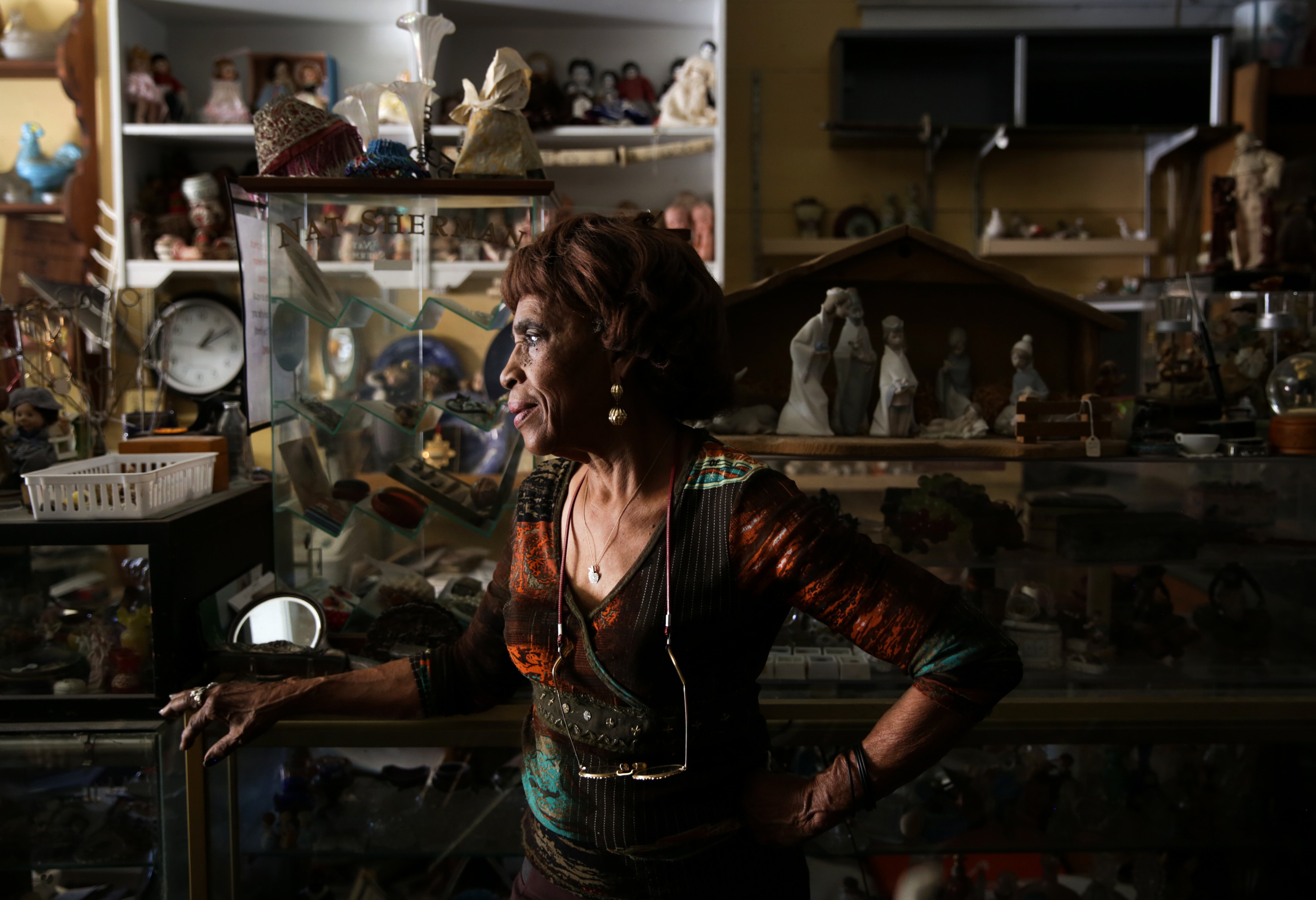
The cultural heritage
The antiques shop came down to McPhaul from her mother’s side, which enjoyed a long, thick history in East Austin and elsewhere.
Her father, the dapper Augusta Singleton, lived in New York while she was young. Her mother, Ilesta Sidle Singleton, pursued education, including at segregated Prairie View A&M University, and worked for some politically connected Austin families. She also tended the store until her death.
Just one of McPhaul’s four siblings, Shirley Ann Johnson, survives. They grew up at 1511 Hackberry St., and many of them attended a series of segregated neighborhood schools familiar to old-timers — Olive Street, Blackshear, Kealing, Old Anderson. They gathered regularly at Greater Mt. Zion Baptist Church on Pennsylvania Avenue in East Austin.
RELATED: One Austin church, 2 pastors, 80 years
“When I was young, I thought church was home,” McPhaul says. “My grandmother was a missionary. Her sister was a missionary, and her three brothers were ministers. They were all singers on my grandmother’s sister’s side. The other side were the entrepreneurs.”
At first, McPhaul wanted to become a nurse, so she studied physical therapy at what is now Prairie View A&M University. She switched to a major in physical education with a minor in elementary education.
“I taught for 38 years,” she says. “I retired to take care of Mother in 1994. Mother passed in 1997.”
For almost 40 years, she commuted to La Grange, where she taught high school, junior high school and elementary school, ending up as a much-needed ESL teacher for the district.
“I taught physical education and coached basketball, volleyball, the cheerleaders and the drill team,” she says. “You weren’t paid for all this extracurricular coaching. Just the men coaches got paid.”
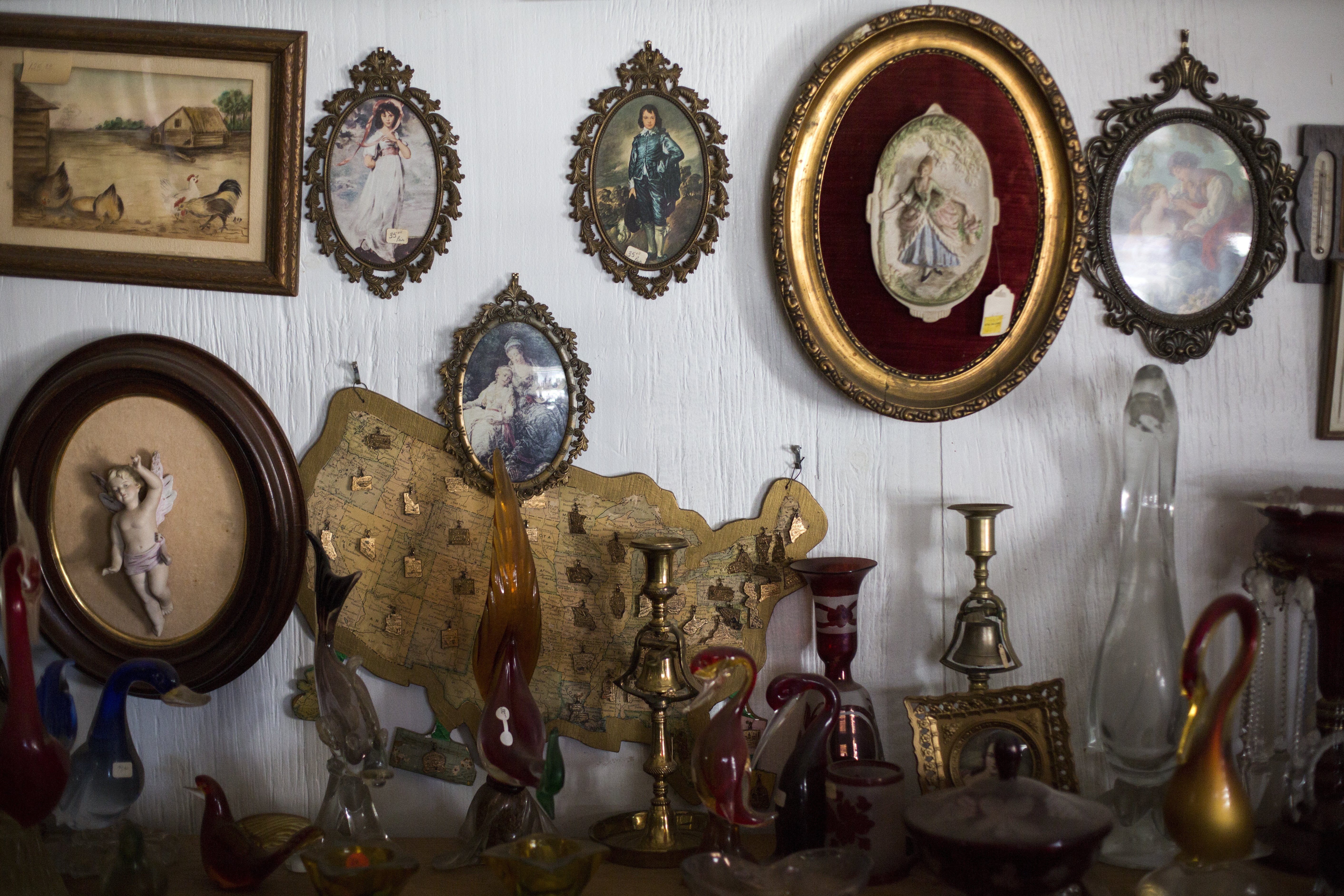
McPhaul had three children with her former husband, Fred Overton, who was related to Austin civil rights pioneer Volma Overton Sr. and long-lived military veteran Richard Overton, who died last year.
Her second husband is Willis Calvin McPhaul, who worked as a maitre d' at the Driskill Hotel.
“President Johnson wanted him to be his White House maitre d',” McPhaul says. “Whenever President Johnson came to town, he’d go out to the ranch and bartend.”
MORE: In April 1964, six days of protest
Her children are Pamela Holt, Frederick Overton and Tanny Nance, the last named after an uncle in the antiques business. They produced six grandchildren, who have added four great-grandchildren.
She moved into her cheery Cherrywood house a year after the Fair Housing Act of 1968 passed.
“At that time, it was mostly Anglos,” McPhaul says. “Only two black families. The woman who sold us this house said that she didn't want to leave this neighborhood, but her husband wanted to leave because blacks were moving in.”
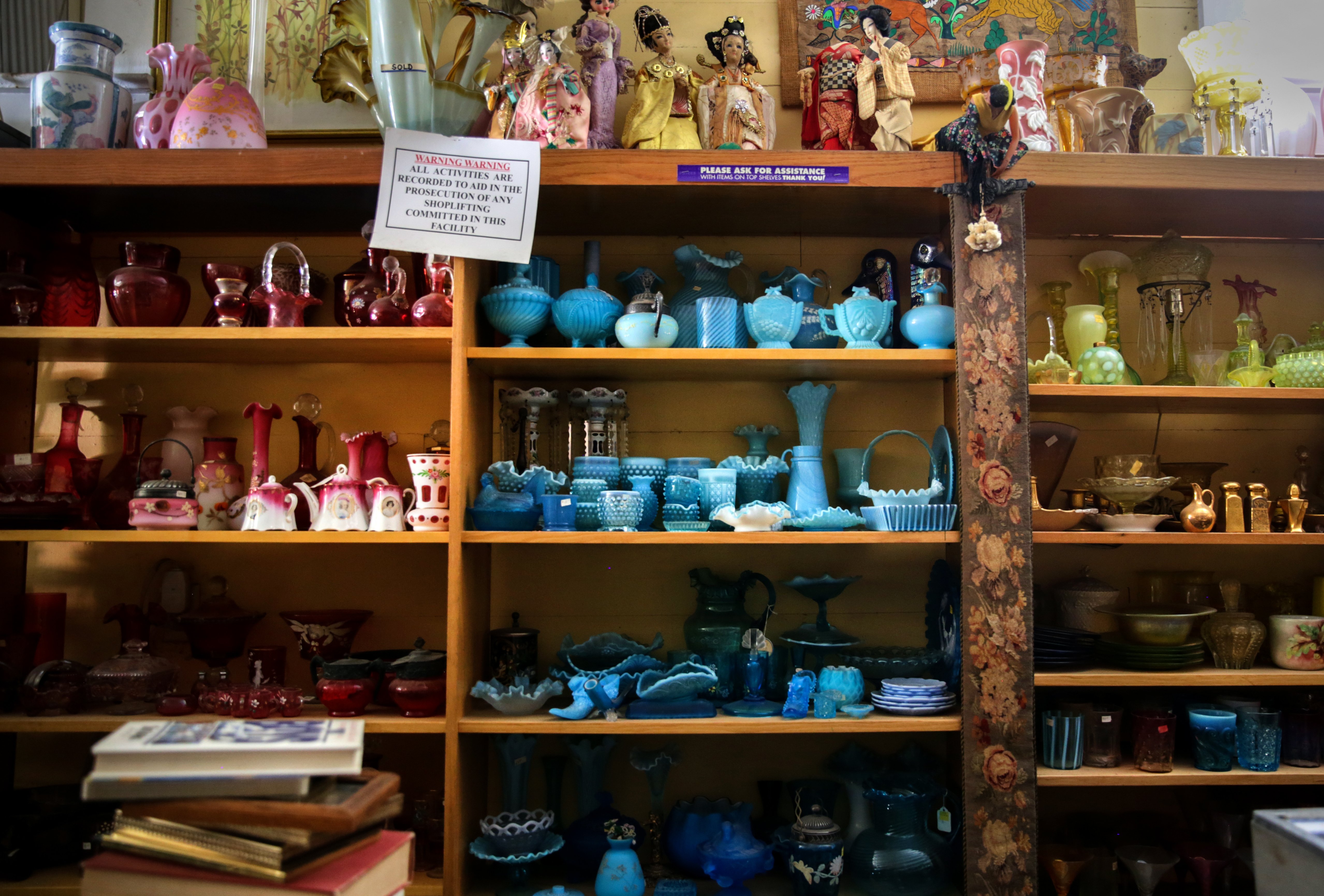
The business
McPhaul remembers her mother’s father, Simon Sidle, who founded the antiques business, as a “character.”
“Look here: My grandfather owned almost all of East 13th Street,” McPhaul says about rows of residences along this East Austin street. “From Chicon Street going east to Singleton Street. He was a womanizer and a gambler.”
McPhaul’s aunt Theresa Sidle was the next keeper of the antiques flame.
“She took over right after he passed,” McPhaul says. “She was known as ‘queen of antiques,’ and the shop, Theresa and Tanny’s, was at East 11th and Red River streets. When school was out, they’d go on shopping trips, state to state, and I’d take over the shop. I was deep into it before that, back when my grandfather was there. I’d want to go to the movies on Saturday. I knew just where to get money. I’d touch everything in the place, and he gave me money to get rid of me.”
Movies meant a trip to the Harlem Theater, which served East Austin at East 12th and Salina streets from 1935 to 1973, when it burned down. Then her friends gathered at the Doll House hamburger joint, which was housed in the structure right behind Johnnie’s.
The current antiques shop opened in the 1970s, during her mother’s tenure at the business.
“I'm the one who found it,” McPhaul says. “It used to be a cleaners and a law office. We had lost the Red River shop to urban renewal. Later, Mother wouldn’t stop working when she took sick. She always said that she would work there till the day she died. Same with my auntie; she worked there until the day she died. Auntie would never sell on a Sunday because of her religion, so I would go over and take over for her.”
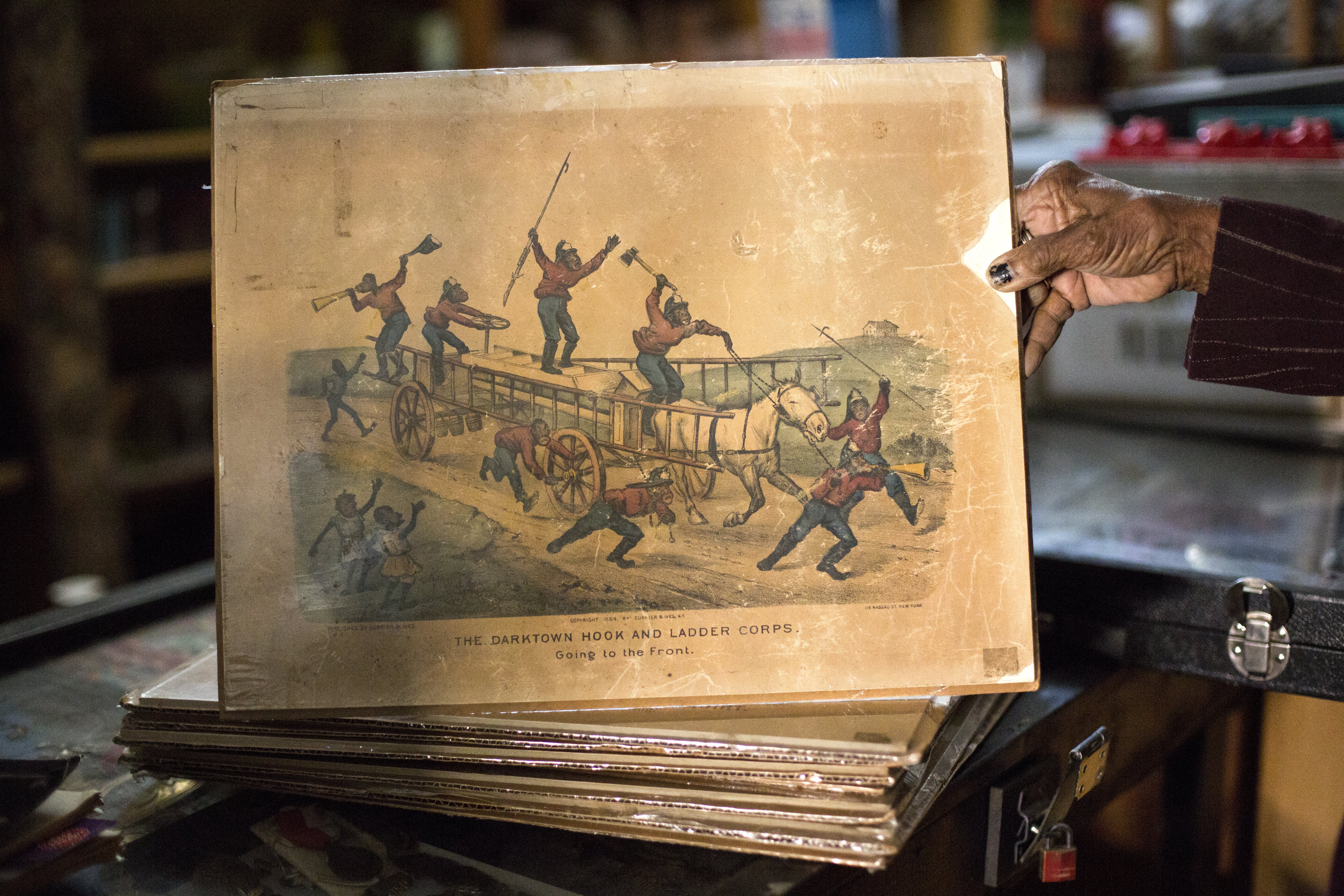
The new location, East Sixth, not unlike Red River, was comparatively integrated all along. It was associated with Masonville, a freedom colony just to the south, in the 19th century, but also with Latino, Lebanese, Anglo and Chinese merchant families in the 20th century. A strip of Hispanic bars and clubs transformed the older houses and commercial structures just to the east of Johnnie’s by the end of the 20th century.
Trendy bars and eateries replaced most of those stops during the 21st century. The Corazon Apartments across San Marcos Street from Johnnie’s were among the first taller developments, to be followed to the south by the Saltillo projects still under construction. Almost none of the industrial operations associated with the nearby railroad tracks survive.
McPhaul followed in the family tradition by touring the antiques circuit in Houston, Dallas, Waco, Belton and other Texas stops.
She also followed her mother’s and aunt’s custom of collecting black memorabilia. Perusing the collection at her Cherrywood house, one is struck by the blatant racism of some of the images that depict African Americans in extreme stereotypes.
“It’s a part of history,” McPhaul says. “A lot of times, it’s offensive to a lot of blacks, but you can't erase the past. These creatures don't look anything like me. I don't care how offensive they are; they will always be part of history.”
While McPhaul recognizes that someday the shop will close for good, she is in no mood to sell out.
“I am going to hang onto it,” she says. “It would be like giving my body away. It’s a part of me, a part of my heritage. My parents worked too hard to keep it, and it’s a part of our legacy, that shop.”
